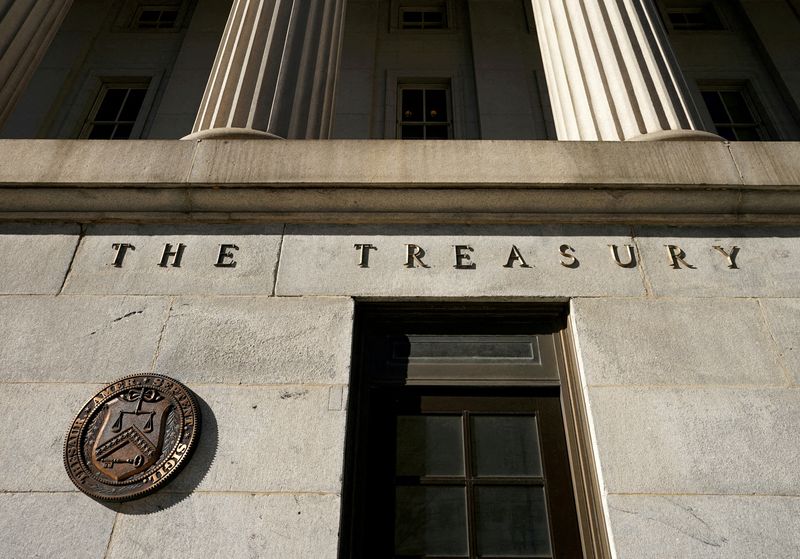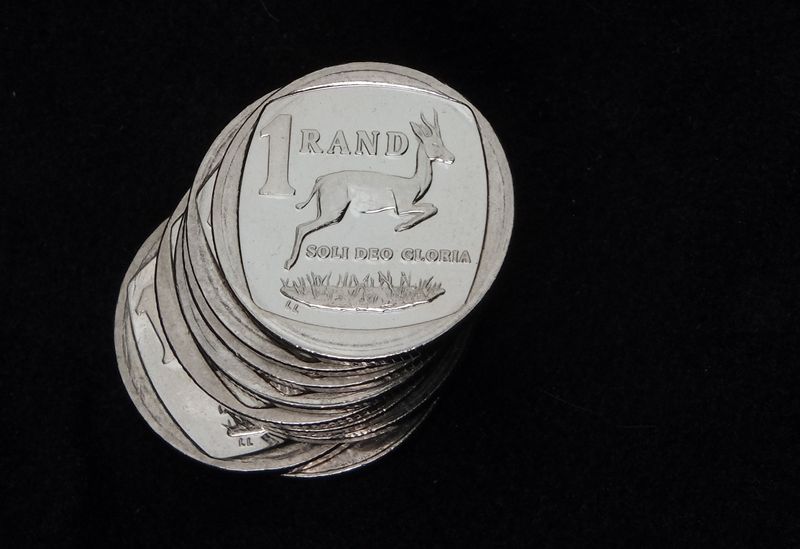Month: June 2024
Dollar gains on hawkish Fed; sterling weakens after BOE meeting
Post Content
US finds no currency manipulation in 2023, Japan added to monitoring list
Post Content
Winklevoss Twins Donate $2 Million in Bitcoin to Donald Trump
Tyler and Cameron Winklevoss, co-founders of cryptocurrency exchange Gemini, have donated 30.94 Bitcoin, valued at over $2 million, to former President Donald Trump’s campaign. Both Cameron and Tyler Winklevoss announced on their X accounts that they contributed 15.47 BTC ($1 million) each to Trump to “put an end to the Biden Administration’s war on crypto,” Cameron stated, stemming from the twins’ discontent with the Biden Administration’s stance on cryptocurrency regulation.
JUST IN: Winklevoss twins donated 30.94 #Bitcoin worth over $2 million to Donald Trump to “put an end to the Biden Admin’s war on crypto.” 🇺🇸 pic.twitter.com/cHD2ENnqZM
— Bitcoin Magazine (@BitcoinMagazine) June 20, 2024
Tyler Winklevoss criticized the Biden Administration for its hostile approach towards the crypto industry, accusing it of weaponizing government agencies to stifle innovation and target crypto companies. “The Biden Administration has consistently attacked American business across the board and villainized its greatest heroes,” he stated. He then further highlighted the administration’s actions, including “Operation Choke Point 2.0,” where federal agencies allegedly pressured banks to avoid crypto businesses. Tyler argued that these tactics are detrimental to the American economy and innovation.
“I also just donated $1 million in bitcoin (15.47 BTC) to Donald Trump and will be voting for him in November. Here’s the TL;DR — President Trump is:
– Pro-Bitcoin
– Pro-Crypto
– Pro-Business,” Cameron stated.
Tyler also lambasted the Securities and Exchange Commission (SEC) for not establishing clear regulations for cryptocurrencies, instead opting to apply outdated laws. He contended that the SEC’s approach hampers the utility and growth of digital assets.
The Winklevoss twins believe that Trump’s pro-Bitcoin and pro-business stance is crucial for the future of the crypto industry in the country. Tyler emphasized the need for a political shift to prevent further harm to the industry and to restore an environment conducive to innovation and economic growth.
“President Donald J. Trump is the pro-Bitcoin, pro-crypto, and pro-business choice. This is not even remotely open for debate. Anyone who tells you otherwise is severely misinformed, delusional, or not telling the truth,” Tyler concluded. “It’s time to take our country back. It’s time for the crypto army to send a message to Washington. That attacking us is political suicide. This is why I will be casting my vote for President Trump in November and I hope you will too. Onward!”
Marathon Uses Bitcoin Mining To Heat Town of 11,000 in Finland
Today, Marathon Digital Holdings, Inc. (NASDAQ: MARA), a leader in Bitcoin mining, has launched an innovative pilot project to recycle heat generated from Bitcoin mining to warm a community in Finland. The 2-megawatt data center, energized at the end of May, is located in the Satakunta region, home to 11,000 residents.
JUST IN: Marathon is now warming a town of over 11,000 in Finland using heat from #Bitcoin mining 🤯 🇫🇮
— Bitcoin Magazine (@BitcoinMagazine) June 20, 2024
“This pilot project in Finland is a critical step forward in our strategy to expand globally and innovate sustainably,” said Fred Thiel, Marathon’s chairman and CEO. “We are not just producing digital assets; we are heating homes and integrating sustainable practices into our business model. We believe that this kind of innovation can drive the advancement of the digital asset compute industry and further strengthen Marathon’s leading position in the field.”
The initiative marks Marathon’s first district heating project and its debut in Europe. District heating involves centrally heating water and distributing it through underground pipes to heat local buildings. Finland, known for its clean energy mix, relies heavily on biomass for district heating. By utilizing heat from digital asset data centers, the project aims to reduce carbon emissions and operating costs.
Marathon’s ASIC Heating Setup
“Europe’s colder climate has given rise to an extensive network of district heating systems that provide warmth to millions of residents,” Marathon stated in its new Heating with Hashes report, published in full below. “This same climate has attracted a different industry – data centers – which benefit from reduced energy consumption and infrastructure costs associated with the cooler temperatures. The share of electricity consumed by data centers in the EU is at least double the global average, with data centers accounting for around 3% of the EU’s electricity consumption compared, to 1.0-1.5% globally. These energy-intensive facilities generate 3 significant amounts of heat, creating a unique opportunity for strategic partnerships with district heating systems.”
“One industry needs heat, while the other generates plenty of it,” Marathon continued in the report. “Instead of wasting the abundant heat produced by data centers, it could be recycled to meet heating demand. This innovation transforms an unwanted byproduct of data centers into a valuable resource for district heating systems, reducing costs and waste for everyone involved while reducing the need for inefficient, carbon-emitting heat sources.”
Marathon’s Heating with Hashes Report
The project is part of Marathon’s broader commitment to sustainability, expanding its footprint to twelve sites across four continents. According to Future Market Insights Inc, the district heating market is projected to grow from $198 billion to $340 billion by 2033, offering significant growth opportunities. By recycling heat, Marathon aims to enhance its sustainability portfolio and explore new revenue streams, aligning with its goal of achieving zero-cost power for digital asset computing.
“Following the success of our pilot project in Utah, where we demonstrated that it is both economically viable and environmentally beneficial to use landfill gas for digital asset compute, we have continued to experiment with innovative ways that our operations can add value beyond securing distributed ledgers, like Bitcoin’s,” stated Adam Swick, Marathon’s chief growth officer. “This pilot project in Finland is our first attempt to convert the heat that we produce as a byproduct of our operations into a valuable resource for a local community. We look forward to gathering more data from this project as we look for additional ways to leverage digital asset compute to build a more sustainable future.”
For more information about Marathon’s sustainability initiatives, visit their website here. Those interested in reading Marathon’s full Heating with Hashes report can do so below:
Dollar extends gains against yen with US economic strength in focus
Post Content
South African rand slips, focus on president’s cabinet picks
Post Content
Left-Leaning Outlets Amplify Their Anti-Bitcoin Bias Following Trump’s Endorsement
The media is buzzing about Trump’s recent endorsement of Bitcoin.
Looking at Bitcoin Perception data (chart below), coverage of Bitcoin together with Trump has increased month-over-month since the start of the year, but last week saw quite a stir, since the endorsement seems to be amplifying an already existing anti-Bitcoin bias among some outlets.
Image credit: Mainstream media coverage of Trump + Bitcoin has increased since the start of 2024. (Bitcoin Perception)
Forbes, Fox, and CNBC covered Trump’s move as a positive step for U.S. energy security and economic strength. They highlight how Bitcoin mining could boost energy dominance and act as a defense against centralized digital currencies.
Fox News and Forbes, in particular, stress Bitcoin’s strategic benefits, aligning with libertarian and conservative values.
Image credit: Fox News/Timothy NerozziImage credit: Forbes/Robert Hart
On the flip side, The Independent and The Washington Post are skeptical.
They suggest Trump’s support for Bitcoin is a ploy to gain political and financial backing. These outlets point out that Trump, who once dismissed Bitcoin, now endorses it—seeing it as an opportunistic flip-flop.
Image credit: Washington Post/Philip BumpImage credit: The Independent/Richard Hall, Andrew Feinberg
The polarized media landscape makes it hard for the public to get a balanced view. Pro-Trump outlets focus on Bitcoin’s benefits, while anti-Trump outlets aim to undermine his motives, reflecting the broader political divide.
Historically, left-leaning outlets have slammed Bitcoin mainly on environmental grounds, arguing that Bitcoin mining consumes too much energy and harms the planet.
But now, Trump has taken center stage as their primary target. These outlets are questioning his motives, seeing his pro-Bitcoin stance as a calculated political move rather than genuine support.
It’s as if they haven’t bothered to look deeper into what Bitcoin represents beyond their usual “energy consumption = BAD” mantra.
Now it’s simply shifted to “Trump = BAD” without a nuanced examination of Bitcoin’s potential benefits to the people they portray to represent or its role in technological innovation.
So, is Trump’s stance on Bitcoin mining a strategic move or a political tactic?
It actually depends on which outlet you let in as part of your content diet, because they will tell you different things.
But media perception – or even politics – aside; Trump’s endorsement has certainly sparked a deeper conversation about Bitcoin’s role in U.S. energy policy and tech innovation, and that could move the cultural needle, which is, when you think about it, a potentially more impactful thing than winning the presidency.
So as we get closer to the November elections, expect more heated debates for the peanut gallery through the mainstream media’s Bitcoin coverage.
Because it’s clear: This is not about Bitcoin; it’s just yet another front in the ongoing political battles fought out in the media landscape to sway you towards a political side.
This is a guest post by Fernando Nikolic. Opinions expressed are entirely their own and do not necessarily reflect those of BTC Inc or Bitcoin Magazine.
Bitcoin’s Role In Defending Democracy In Nicaragua With Félix Maradiaga
At the 2024 Bitcoin Policy Summit, Nicaraguan pro-democracy activist Félix Maradiaga shared his insights on the severe challenges facing his country, which is under the autocratic rule of Daniel Ortega.
According to Maradiaga, the Nicaraguan people are losing their freedoms at an alarming rate.
“According to the Freedom in the World report, we have the very unfortunate label of being the country that over the last year has lost the most freedoms,” Maradiaga told Bitcoin Magazine.
“Imagine a country in which you could go to prison for raising the national flag, for tweeting, for receiving a remittance from an international donor or for expressing your opinions on social media,” he added.
“That’s the situation in Nicaragua.”
Maradiaga pointed out that 130 individuals are currently being arbitrarily detained for political reasons and that, over the last three years, more than 1,700 have been incarcerated under inhumane conditions. He was one one of those 1,700.
The oppressive environment has forced nearly 12% of the population into exile, according to Maradiaga.
Using Bitcoin To Combat Financial Repression
Maradiaga is now working to rebuild the capacity of the democratic opposition in Nicaragua from abroad, and his advocacy includes using Bitcoin to circumvent the financial repression employed by the Ortega regime.
After thanking his wife, Berta Valle, as well as Human Rights Foundation Chief Strategy Officer Alex Gladstein, for introducing him to Bitcoin, Maradiaga recounted an example of how the technology has helped pro-democracy freedom fighters on the front lines in Nicaragua.
In 2018, when his team of human rights defenders compiled reports on Nicaragua’s situation, those involved with the process were compensated via the traditional financial rails.
The Ortega regime was able to access those financial records with help from the European Union, the United Nations and the United States Agency for International Development (USAID), which led to the persecution of those involved with the efforts of Maradiaga’s team.
“We learned very early that we couldn’t use the traditional banking system because financial repression for political control is actually one of the areas in which dictators have learned a lot. They’ve become highly sophisticated,” he explained.
To counteract this, Maradiaga and his colleagues turned to Bitcoin.
“Bitcoin is the only tool that is bulletproof to financial repression from dictators,” Maradiaga stated.
The Misuse Of Anti-Money Laundering Regulation
Reflecting on global policy, Maradiaga discussed the broader implications of legislation and regulation on Bitcoin.
He cited the Magnitsky Justice Campaign, which uses sanctions against oppressive regimes, and noted that these regimes retaliate by freezing the bank accounts of freedom fighters, often under the guise of international money laundering regulations endorsed by institutions like the International Monetary Fund (IMF).
He went on to explain that anti-money laundering rules are often used to target the wrong parties.
“We’ve seen 3,400 NGOs shut down using this particular law,” explained Maradiaga.
He argued that the mechanisms developed post-World War II are obsolete and that embracing new technologies like Bitcoin is essential.
Policymakers Must Educate Themselves About Bitcoin
Maradiaga urged policymakers worldwide to educate themselves about Bitcoin.
“Policymakers around the world who are suspicious of Bitcoin must acknowledge the fact that it’s completely understandable to have questions when [they] don’t understand any technology,” he shared. “Once you are educated about this technology, you can really see that this is a tool that I think is way more viable to tackle these challenges more than the traditional monetary [system].”
The Global Fight Against Dictators
Maradiaga also stressed that Nicaragua’s struggle is part of a larger issue.
“Dictators are collaborating among themselves,” he said.
“They are sharing technology. They are supporting themselves through weapons and mechanisms of repression,” he added.
“Those of us who believe in freedom, in human dignity, in human rights, and in free and fair societies, we need to collaborate with each other.”
Maradiaga shared that people can get involved with his efforts at World Liberty Congress.
MicroStrategy Bought 11,931 More Bitcoin For $786 Million
MicroStrategy, a leading business intelligence and software company, has continued its steadfast commitment to Bitcoin by purchasing an additional 11,931 BTC at a total cost of $786 million.
BREAKING: MicroStrategy buys an additional 11,931 #Bitcoin for $786 million. pic.twitter.com/H7XN5XtBtK
— Bitcoin Magazine (@BitcoinMagazine) June 20, 2024
On June 18, MicroStrategy completed a private offering of convertible senior notes, which included a 2.25% coupon and an approximately 35% conversion premium over the U.S. composite volume weighted average price of MicroStrategy’s class A common stock. The offering was well received in the marketplace and upsized to a total of $800.0 million in aggregate principal amount, MicroStrategy stated. This amount included the exercise by the initial purchasers of their option to purchase $100.0 million of additional notes, resulting in net proceeds from the offering to MicroStrategy to be approximately $786.0 million.
“On June 20, 2024, MicroStrategy announced that, during the period between April 27, 2024 and June 19, 2024, MicroStrategy acquired approximately 11,931 bitcoins for approximately $786.0 million in cash, using proceeds from the Offering and Excess Cash (defined in our quarterly report on Form 10-Q for the three months ended March 31, 2024), at an average price of approximately $65,883 per bitcoin, inclusive of fees and expenses,” the company stated.
The company initially entered the Bitcoin market in August 2020, making an initial BTC investment of $250 million. Since then, they have consistently added to their Bitcoin holdings, creating a treasury reserve strategy that has garnered over 226,331 bitcoin worth more than $14.9 billion at the time of writing.
“As of June 20, 2024, MicroStrategy, together with its subsidiaries, held an aggregate of approximately 226,331 bitcoins, which were acquired at an aggregate purchase price of approximately $8.33 billion and an average purchase price of approximately $36,798 per bitcoin, inclusive of fees and expenses,” MicroStrategy concluded.
VanEck’s Spot Bitcoin ETF Goes Live on Australia’s Largest Stock Exchange
VanEck’s spot Bitcoin ETF (VBTC) has officially launched on the Australian Securities Exchange (ASX), Australia’s largest stock market. The ETF was approved earlier this week and is now available for trading, providing Australian investors with a simplified and secure way to gain exposure to Bitcoin.
NEW: VanEck’s spot #Bitcoin ETF officially went live on Australia’s largest stock exchange 🇦🇺 pic.twitter.com/m0gehtEd70
— Bitcoin Magazine (@BitcoinMagazine) June 20, 2024
“ASX welcomes VBTC to the exchange!” announced ASX. “Congratulations to the VanEck Australia team for launching the first crypto ETF on ASX.”
The launch of VanEck’s Bitcoin ETF on ASX offers a more accessible option for investors who prefer traditional stock exchanges over crypto exchanges. This ETF, which carries a management fee of 0.59%, allows investors to gain exposure to Bitcoin without directly holding the BTC, thereby reducing the complexities and risks associated with direct ownership.
“While it has been possible to trade Bitcoin via crypto exchanges, trading units with exposure to Bitcoin via an ETF on an exchange like ASX means you’re able to buy and sell those units through a traditional brokerage account, simplifying the process and opening the opportunity to more Australians,” said Andrew Campion, ASX’s general manager of investment products and strategy.
Earlier this month, the Monochrome Asset Management’s Bitcoin ETF began trading on the Cboe Australia exchange, which has so far purchased over 54 bitcoin worth $5.3 million AUD.
Monochrome Bitcoin ETF (Ticker: $IBTC) AUM as of 19/06/24 pic.twitter.com/TjtHmn0jVF
— Monochrome (@MonochromeAsset) June 20, 2024









